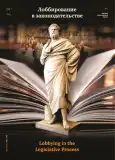Modern Approaches to Developing the Ethics of Using Artificial Intelligence in Legal Proceedings
- Autores: Volosova N.Y.1
-
Afiliações:
- Orenburg State University
- Edição: Volume 3, Nº 2 (2024)
- Páginas: 56-62
- Seção: Criminal law
- URL: https://journals.eco-vector.com/2782-7372/article/view/633685
- DOI: https://doi.org/10.33693/2782-7372-2024-3-2-56-62
- EDN: https://elibrary.ru/FVRKWU
- ID: 633685
Citar
Texto integral
Resumo
Artificial intelligence is becoming an integral part of human life, its implementation is quite intensive, including the sphere of legal proceedings. In this regard, the question arises about the ethical side of the use of artificial intelligence in the administration of justice. It should be noted that the general anthropocentric vector towards the development of the ethical foundations of the use of AI systems is characteristic of most States, which indicates the commitment of States to respect fundamental human values when using AI in judicial proceedings. The ethical principles of the administration of justice in many States are undergoing significant changes due to the formation of a new ethics of justice – justice using artificial intelligence. This article will be devoted to the study of global trends aimed at the formation of moral principles of judicial proceedings using artificial intelligence.
Texto integral
Sobre autores
Nonna Volosova
Orenburg State University
Autor responsável pela correspondência
Email: vasilii_vasiliev@rambler.ru
Código SPIN: 8620-3006
Dr. Sci. (Law), Associate Professor; Head, Department of Criminal Law
Rússia, OrenburgBibliografia
- Balchindorzhieva O.B., Myakhanova A.N., Sapkeev D.V. Philosophical, legal and ethical aspects of the organization of the Smart Court: Chinese experience. Bulletin of Buryat State University. 2023. No. 3. Pp. 70–76. (In Rus.)
- Wang Yongqi. Complex application of artificial intelligence in court decisions – the current situation, difficulties and countermeasures. Legal Bulletin. 2020. No. 1. URL: https://mp.weixin.qq.com/s__biz=MzU4NjYxMTM2Mw==&mid=2247498975&idx=1&sn=31ecbdd91fb87d89a5415a4ecd3a558e&chksm=fdfa1313ca8d9a05303aa1cf9569879ce465112d2e2b7dba28d1e94a0a31706aa22e02bc23c7&scene=27 (data of accesses: 08.09.2023).
- Ignatiev A.G. Ethics in the field of artificial intelligence in the focus of interdisciplinary research and the development of national approaches. Moscow, MGIMO, 2022. P. 6.
- Kravchuk N.V. Artificial intelligence as a judge: prospects and concerns. Social and humanities. Domestic and Foreign Literature. Ser. 4: State and Law: Abstract Journal. 2021. No. 1. (In Rus.). URL: https://cyberleninka.ru/article/n/iskusstvennyy-intellekt-kak-sudya-perspektivy-i-opaseniya (data of accesses: 22.11.2023).
- Popova I.P. Implementation of the principles of the judiciary in the context of digitalization of legal proceedings. Bulletin of the East Siberian Institute of the Ministry of Internal Affairs of Russia. 2019. No. 4 (91). (In Rus.). URL: https://cyberleninka.ru/article/n/realizatsiya-printsipov-sudebnoy-vlasti-v-usloviyah-tsifrovizatsii-sudoproizvodstva (data of accesses: 06.08.2021).
- Skurko E.V. Ethics of artificial intelligence in the development of legal systems of our time. Social and Humanities. Domestic and Foreign Literature. Ser. 4: State and Law: Abstract Journal. 2021. No. 1. (In Rus.). URL: https://cyberleninka.ru/article/n/etika-iskusstvennogo-intellekta-v-razvitii-pravovyh-sistem-sovremennosti (data of accesses: 07.12.2023).
- Daly A., Hagendorff T., Li H. et al. Artificial intelligence, governance and ethics: Global perspectives. Hong Kong. 2019. 42 р. URL: https://papers.ssrn.com/sol3/papers.cfm?abstract_id=3414805 (дата обращения: 17.10.2020).
- Gesetz zur Einführung der elektronischen Akten in der Justiz und zur weiteren Förderung des elektronischen Rechtsverkehrs vom 05. BGBL. 2017. T. I. № 45. S. 2208.
- Kupchina E.V. The application of artificial intelligence technology in the US Civil Court System. Legal pq Concept = Pravovaya paradigma. 2021. Vol. 20. No. 4. Pp. 63–71. (In Rus.). doi: 10.15688/lc.jvolsu2021A8
- Reiling A.D. Courts and Artificial Intelligence. International Journal for Court Administration. 2020. No. 11. URL: https://iacajournal.org/articles/10.36745/ijca.343
- Surden H. Ethics of AI in law: Basic questions. In: The Oxford handbook of ethics of AI. M.D. Dubber, F. Pasquale, S. Das (eds.). Oxford, 2020. Pp. 719–736.
- Yao J., Peng H. Research on the application of artificial intelligence in judicial trial: Experience from China. Journal of Physics: Conference Series. 2020. No. 1487. P. 012013. doi: 10.1088/1742-6596/1487/1/012013
Arquivos suplementares











